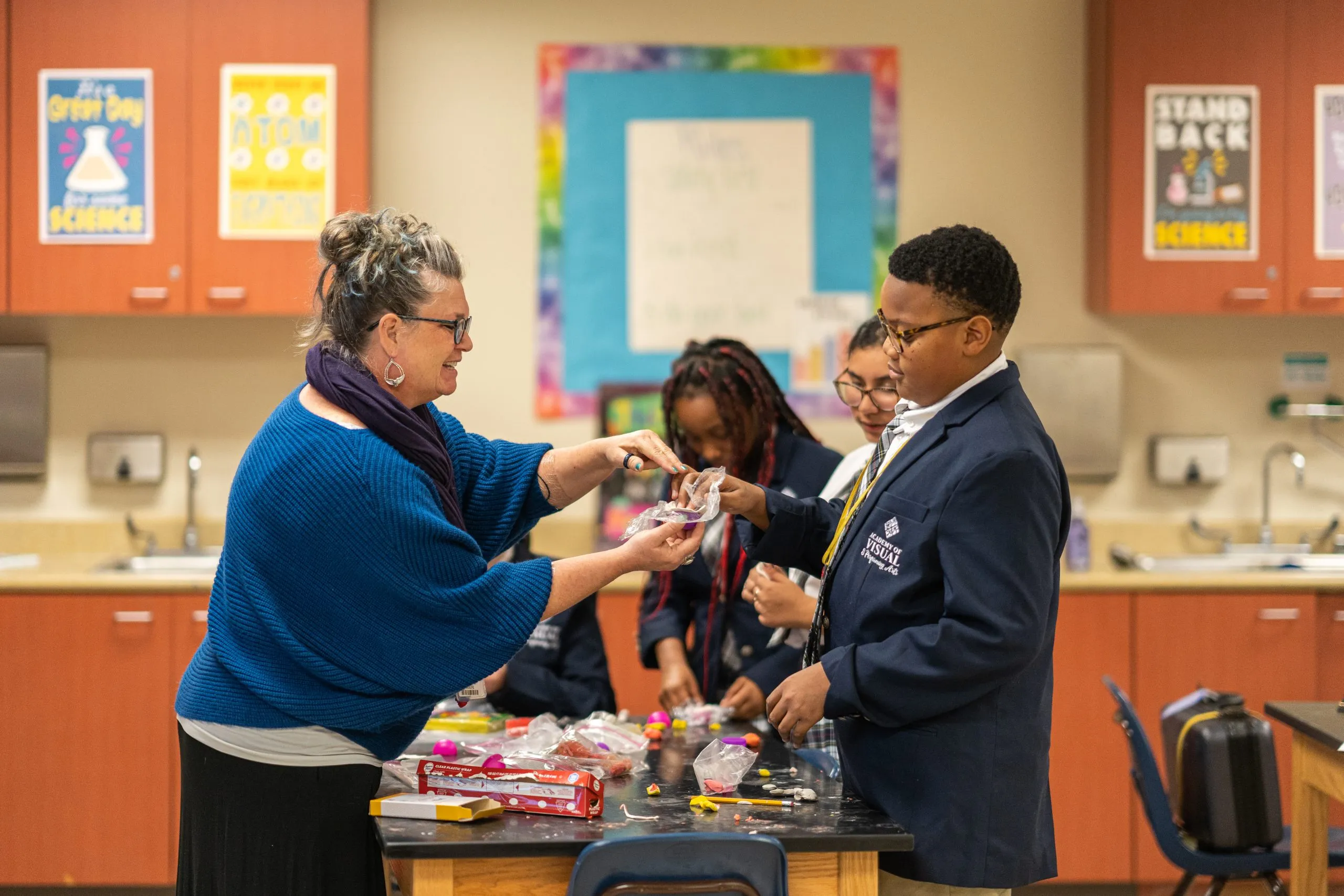Fort Worth charter school focuses on trauma-informed curriculum. What does that mean?

Fort Worth Report by Dang Le, November 27, 2023: Superintendent Stephanie Love’s eyes were glued on her students eating in the cafeteria.
The sixth graders chatted with cafeteria staff while grabbing their lunches. Those who already had food talked or played games with each other on their laptops. Some asked for personal space.
Love showed multiplication flashcards to the students. She quizzed them in a tone serious enough that the students didn’t ignore her but soft enough that they were all engaged.
It’s a normal day at the Academy of Visual and Performing Arts, a charter school open to all students that focuses on a trauma-informed curriculum, which Love defines as “focusing on well-being.”
The academy opened to students this August. The charter school is the only one approved last year by the State Board of Education out of five that applied. In the approved application, the academy detailed various forms of traumatic events students get exposed to daily and how those could impact students’ lives.
The goal of the academy is to help students heal if they have had trauma in their lives, but it also hopes to avoid creating or contributing to trauma, as well.
In its first year, the charter accepted almost any student who wanted to attend, Love said, and some came with a long list of disciplinary actions they received at other schools. The charter is already seeing behavioral changes in those students based on the structure, she said.
Nationwide, almost 1 in 5 students between 12 and 17 reported experiencing physical assault, and about 2 in 5 reported witnessing violence, according to the Substance Abuse and Mental Health Services Administration. But not all trauma in a child’s life is so obvious.
“Sometimes, understanding the broader implications of experience — all of it can constitute trauma depending on how a kid handles it,” Love said. “That’s why we don’t call it trauma. We call it ‘focusing on our well-being,’ so we don’t have a negative stigma because sometimes, things are not their fault.”
The word “trauma” has a negative connotation, Love said, so she wants to focus on solutions instead: physical, psychological, social, emotional and financial well-being.
Social well-being
Often, people disregard conversations about mental health, thinking that they promote fragility and it’s best for students to tough it out. But trauma-informed education is not about being “touchy-feely,” and it’s backed up by research and theory, said Alex Shevrin Venet, a trauma-informed educator and teacher at Vermont State University.
The approach isn’t about lowering expectations or making students avoid emotional topics, Venet said. Instead, it’s about creating a safe environment for students to care for one another and keep down stress about school.
A functional trauma-informed approach means teachers are present in the hallway, building relationships with students and ensuring they feel supported and encouraged, Love said.
Teachers have time to communicate with students because the school has only 151 students, she said.
Students should learn about emotional intelligence in elementary school, Love said. But her school currently has sixth and seventh graders. She sees middle school as a great time to intervene because students are going through puberty and learning how to handle friendships and relationships.
Read more from the Fort Worth Report here.




